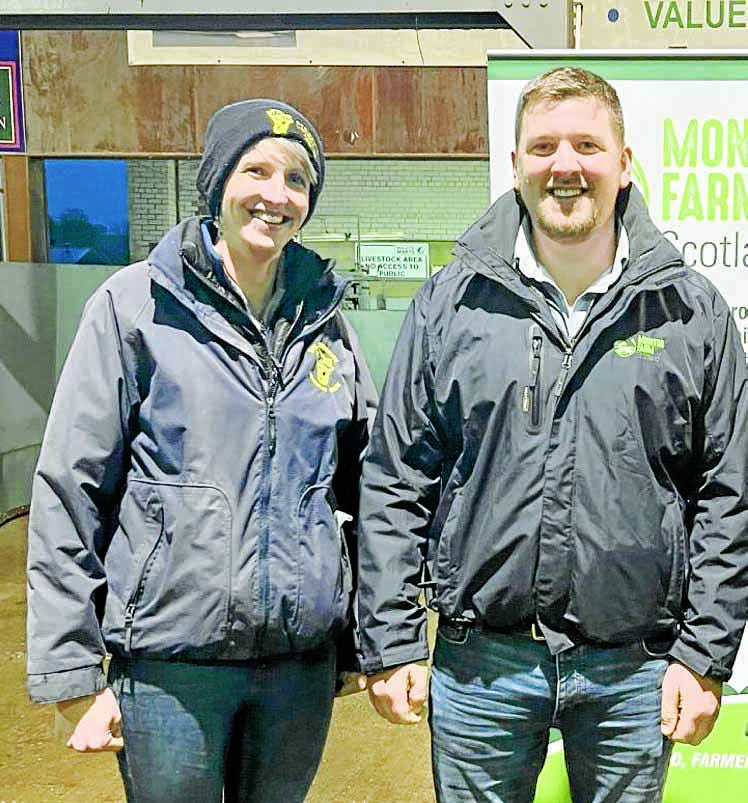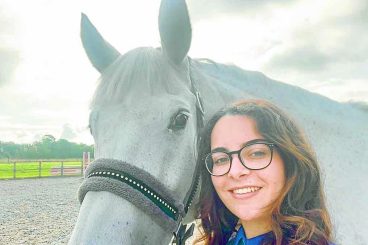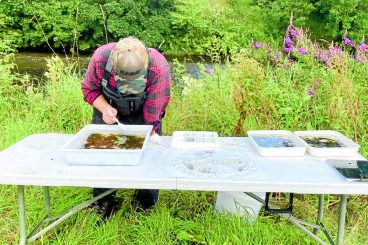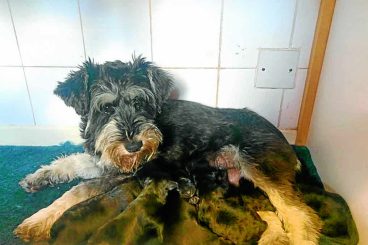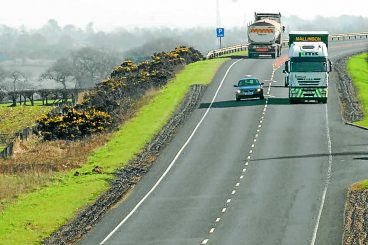A DUMFRIESSHIRE farm is taking part in research to help boost lamb survival rates.
The work by farmer Richard McCornick, of Barnbackle at Lochfoot, is helping identify issues in lambing by recording ewe and lamb deaths.
He revealed more at the latest Monitor Farm Scotland meeting at Wallets Marts in Castle Douglas, telling attendees how it had helped identify issues on-farm, and prompted action to tackle them, as well as inspiring a new research project.
Barnbackle, which is a 200 ha beef and sheep unit, is one of this year’s Scottish Monitor Farms and is using data to identify flock performance issues.
Sheep numbers have increased this year with 800 ewes and 150 ewe lambs to the tup this autumn, so there is a particular focus on improving performance. The farm’s Integrated Land Management Plan, produced by SAC Consulting highlighted lambing losses as an area for attention.
As a result, a flock tally sheet recording losses on a whiteboard in the lambing shed helped identify the main causes of loss.
To tackle these, Richard is going to focus on ewe nutrition and health, colostrum quality and lamb immunity.
It has also led to a deeper investigation into colostrum quality and failure to transfer passive immunity from ewe to lambs.
The collaborative project between Monitor Farm Scotland, Livestock Health Scotland and run by The Stewartry Veterinary Centre and University of Glasgow, will involve a holistic approach, says vet and researcher Ali Haggerty.
“We will be looking at ewe body condition score and nutrition, then sampling ewe colostrum and blood testing their lambs to see how that marries up, as well as investigating lamb deaths,” she said.
The ultimate aim of the project is to increase lamb survival rates, producing more lambs for sale.
Ali added: “The whiteboard at Barnbackle highlighted that quite a lot of the lamb losses were around lambing, from things such as watery mouth or joint ill. Lambs are born without any antibodies, so they rely on that first few hours of receiving colostrum from their mother for immunity to disease in the first few weeks of life.
“We think that if we can look at improving their immunity, we will have more, healthier lambs on the ground.”
While she cautions that the study will only be a snapshot in time, she says there are some key areas of focus, including ewe nutrition, colostrum production and transfer of immunity.
All the data will be collated, with results expected in early summer.
Ali said: “We aren’t changing too much on the farm this year and in the run up to lambing as we want to capture what is going on and to be able to assess that. While Richard lambs indoors, I expect some aspects of the results to be equally applicable to outside lambing, and I think it will focus attention on just how important colostrum is.”





